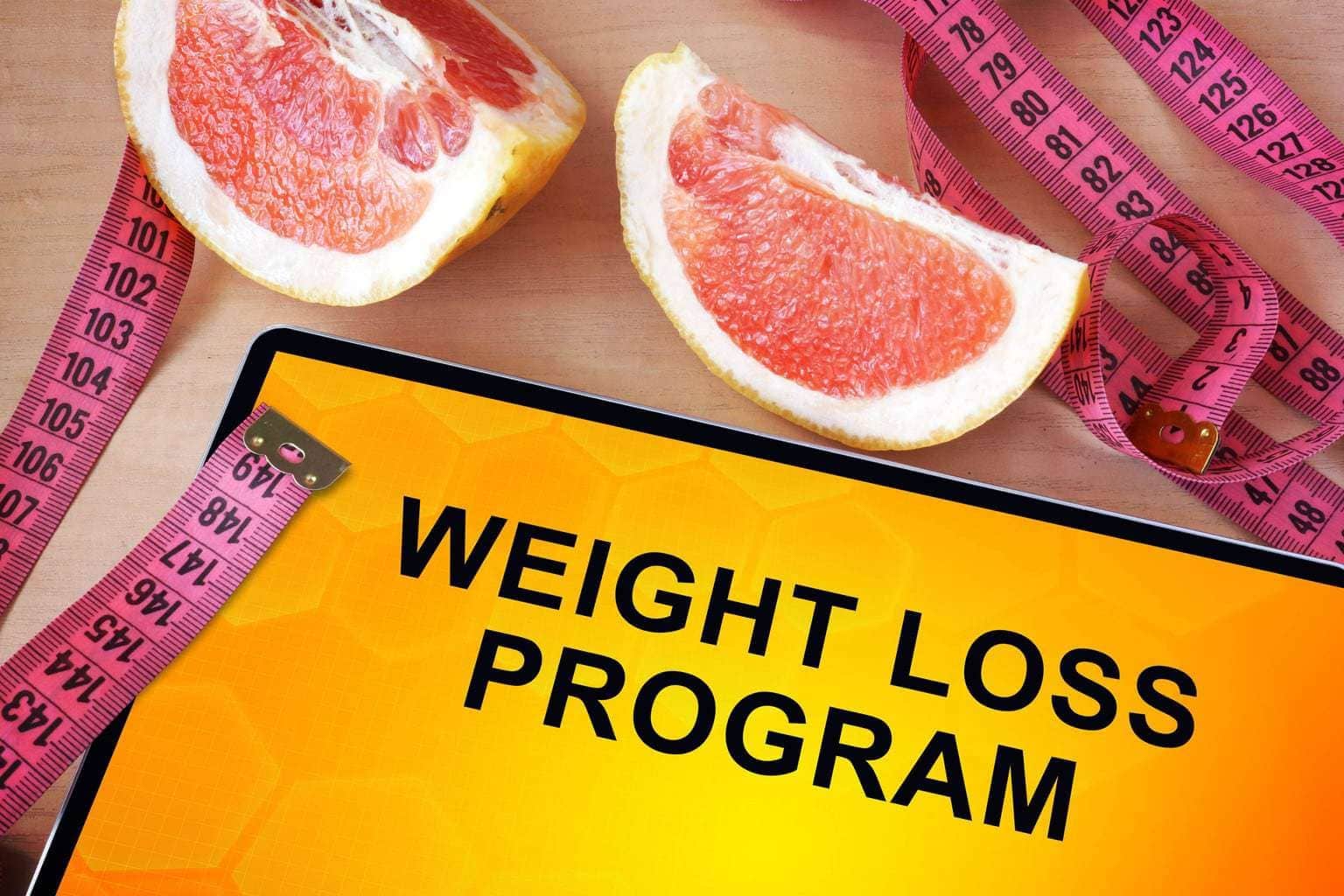The Five Step Weight Loss Mindset Plan
1. Starting a New Hobby When You Start a Weight Loss Program
We all know the many reasons why weight loss programs fail. They’re often boring and leave us feeling hungry, tired and deprived. Experts explain that there are many ways to make weight loss programs more effective for dieters such as by starting a program with a friend, focusing on a well-rounded meal plan instead of counting calories and eating the right fat-burning foods. Yet there’s another way to approach a weight loss plan, boost your enthusiasm and curb your appetite: Turn your program into a hobby.
When first approaching a new weight loss program, you probably feel as if it’s impossible to put dieting and hobbies in the same category. After all, any program where you have to cut out your favorite foods, beverages and late-night snacks can’t possibly be any fun – or can it? Perhaps this is where many people go wrong from the very beginning. They look at their weight loss program as a challenge to their everyday lifestyle and something that denies them the things they love. They focus on what they can’t have anymore, as well as such details as calories burned, pounds lost and carbs eaten.
Turning the program into something fun is one of the best favors you can give yourself. There are many ways to go about this, making it easy to choose a system that works for you. For example, organize your weight loss program around your own interests. Do you love to cook? Do you enjoy water sports? Do you work well on a reward system? Everyone has their own niche, which is why it’s important to build your weight loss program around the things you enjoy.
Now you can begin redirecting your weight loss program toward a healthy hobby. For example, if you enjoy cooking, splurge on a few new cookbooks, start a recipe blog online and make it a goal to prepare two new meals each week or cook with a new ingredient in each meal. You can also try incorporating at least three colors on your plate for each meal. You’ll be cooking and eating healthier, all while turning your new eating habits into a hobby that you already love.
Many people find that seeking out their own active hobbies is what makes the real difference in their weight loss program. Since programs are best served by a healthy balance of exercise and eating right, think about the sports or activities you love. Maybe it’s jogging through the park with your dog, surfing over the waves or hiking through a scenic trail. You may even enjoy group activities such as sand volleyball or horseback riding. Even a competitive game of Wii can get you moving all within the comforts of your own home. By focusing on an active lifestyle and the hobbies that you already enjoy, you’ll focus less on the insignificant details of the diet.
Don’t be afraid to make a reward system for yourself and tie it to your hobby. A new pair of rollerblades, a cooking class or formal waterskiing lessons are just a few examples. You’ll be having fun, focusing on yourself and working toward your weight loss program without feeling the slightest bit of deprivation. More importantly, when taking the time to enjoy your weight loss program, you won’t mind continuing on with the goals you have set in place. Instead of focusing on the foods and drinks you can’t have, you are building an active, rewarding lifestyle that you won’t want to give up – even if you do have to opt out of that stack of fried onion rings!
2. Setting Intentions Before Beginning A Weight Loss Program
Have you ever started something new in life, only to find that you never had any real intentions in the first place? Sometimes we add things to our already-busy schedules because we feel like we have to. This often happens with weight loss programs, as many people feel that they have to start a new program for the New Year. It doesn’t take long before people are comparing numbers and success stories, and you’re left feeling like you’re lagging far behind.
The best weight loss program is one that is fun, enjoyable and motivating, as this is what will keep you going strong. To achieve this goal, you’ll want to set your intentions beforehand. Be honest with yourself and consider what’s important to you. Instead of just saying that you want to lose weight, think of the specific factors that will make a difference in your life. Maybe you want to be able to participate in a marathon or hike a particular trail with a friend. Perhaps you want to take part in professional surfing lessons or join a kickboxing class. These are all intentions that will keep you fighting for progress.
For some, their intentions are more serious and focus on health-related factors. As we get older and our metabolisms slow, people are often faced with health conditions that are a direct result of not eating right and lack of exercise over the years. Your weight loss program may have intentions to lower your cholesterol and decrease the risk of heart attack. By defining your intentions early on, you’ll have more to work toward than just the same old adage of, “I want to lose weight”.
When you do have your purpose clearly defined, it’s important to build your weight loss program around these goals. For example, if you want to be able to participate in a 5K and raise money for cancer research, cardio workouts and fat-burning foods will help you reach your goal more than lifting weights and eating protein-rich foods. If you want to lower your bad cholesterol and raise your good, eating high fiber foods and exercising regularly will be most effective.
It’s also important that you don’t focus so much on the details of your weight loss program. Many people get wrapped up in how many calories they’ve eaten and burned for the day, as well as how much weight they’ve lost. This can be dangerous and actually cause you to fail in the long run.
Consider this example: During a steady weight loss program, you lowered your bad cholesterol and began eating a high-fiber diet. You are off to a great start and making a healthy difference in your future and longevity. However, since you only focused on losing pounds and fitting into your old jeans, you got deterred and quit the program. If you had stuck to your original intentions of lowering cholesterol, you would have kept with the program and continued to improve your health.
By focusing on the larger picture, you set yourself up for success. Everyone loses weight at different intervals and have individualized target weights. To help you keep on track, it’s a great idea to keep a log of your progress. Record the things you can do now that you couldn’t do before. Maybe you can run for 30 minutes at a time instead of 20. Perhaps you have the confidence to swim at the health club with your friends when you didn’t before. These are real examples of progress made and the practical intentions that help you get there.
3. Don’t Follow A Set Diet
There are hundreds of weight loss programs to try; each with its own promise of weight loss, a better body and more self esteem. Unfortunately, the goal of many of these programs is to be marketable so that their respective books, memberships and videos increase in sales. Just think about how many times you’ve heard about a new and effective weight loss program that everyone is raving about. The media attention these diets receive are exactly what they’re looking for.
This was the case with the Atkins Diet that many people were trying out with much success. The downside is that the diet deprives the body of carbohydrates, which are essential to the functioning of the body. With diets like these, the results may be quick but are often not long term. If you go back to eating carbs for example, you can expect to gain the weight back. And with such an essential component as carbohydrates, it’s dangerous to deprive your body of them for any length of time.
The Atkins Diet is still around today and remains controversial, but serves as a representation of other diets. Many weight loss plans go beyond a book and expect that you pay to be a member or buy into a meal plan.
The good news is that you don’t need to be part of an expensive weight loss program in order to lose weight. Not only can you close your pocketbook, but also you won’t have to follow a strict regimen. Diet plans are rigid and don’t allow for much flexibility. Dieters then feel hungry, tired and bored, which ultimately leads to the failing of the diet.
The best approach is to develop a healthy, wholesome attitude toward eating. You’ll then want to focus on filling your plate with more fruits and vegetables, adding a variety of colors to your dishes and swapping out some of your higher fat foods for lower fat versions such as reduced fat dairy, lean meats and olive oils.
Many people simply don’t know what a serving is, so familiarizing themselves with portion sizes is an essential ingredient to losing weight. The best part about a wholesome eating plan is that you get all the nutrients you need without depriving yourself of anything. Instead, you’re controlling portion sizes, making healthier choices and learning which foods have the most value.
That’s not to say that all weight loss plans are bad. In fact, many of them include smart ideas that should be a part of every weight loss program. For example, having a friend or strong support group will keep you inspired, support you as you encounter highs and lows and prevent you from quitting your diet. Other diets incorporate 30 minutes of exercises several times a week and pre-portioning out snacks and meals.
Just remember that it’s important to focus on your mindset towards your weight loss and not just food and diets. The end result is a happier, healthier you that doesn’t have to be restricted by a rigid diet plan, and instead, truly understands what healthy eating is.
4. Lose Weight For Yourself – Not Others
When you decide to create a weight loss program for yourself, there is one component that should always be present: Your willingness. When it comes to physical appearances, our views of what is desirable is shaped by the media. Of course, we all understand that a healthy body weight is linked to better health, lower cholesterol and a lower risk of heart disease. Maintaining a healthy weight also leads to better self esteem and an active lifestyle. That said, many people overlook these benefits and aim to be thin, taking drastic measures to get to this point. As the media redefines what “thin” really means, more dieters are taking things to the next level and forgetting what it means to be healthy.
Unfortunately, there are a variety of ways that dieters are led to this point, so there’s no way to tell who’s going to take their weight loss plans too far. Some dieters already have over-compulsive tendencies or a strong desire to be thin prior to starting a weight loss program. Others find themselves losing weight and then becoming obsessed with dropping pounds. While it’s easy to say that you shouldn’t become consumed with the details, it’s hard to find a balance that includes perseverance and dedication.
The best thing to do is to start your weight loss program with one thing in mind: You. No program should be solely based on losing weight; instead it should encompass a healthy eating plan and regular exercise so that you can feel better, look better and live longer, all while giving yourself a better quality of life. Too often, people start diet plans to fulfill a certain image or to conform to the views of others. This is dangerous and can lead to unhealthy eating and depriving the body of essential nutrients. And if you take large measures to reach your new body, you’ll need to continue depriving yourself to avoid gaining weight.
When you choose to eat healthy and control your portion sizes, your healthy weight will fall into place. It may take longer, but you’ll have the assurance that you’re eating what your body needs to stay fueled and healthy. If you approach your weight loss program with this healthy attitude, you’ll be more likely to stick with the program and focus on the overall picture: A healthier and happier you. Yet even if you have these goals in mind and learn to shut out what the media is saying, it can be hard not to listen to what friends and family may say.
Since dieting is often a subject of conversation, you may choose to tell others that you’ve started a weight loss program or maybe you’ve even joined a program with a few of your closest pals. While the support can be beneficial, it can also lead you to doubt yourself. Although most people mean well, it can be hard not to cross-compare, especially if you’re the one that isn’t losing as much weight as your friends.
In some cases, you may even find that there are people who will comment on your progress. Don’t be tempted to second guess yourself; in most cases, these people are resentful that you’ve made the decision to start eating better. And finally, don’t compare yourself to what you see in the media. Having realistic expectations and the drive to lose weight for no one but yourself will push you through those difficult days. After all, it’s YOU that will endure the program, make lifestyle changes and enjoy the rewards that losing weight has to offer.
5. Learning To Focus
Focus can be such a difficult thing for many. Today, we’re going to look at the reasons why you should learn to focus when on a weight loss adventure.
Whether you have just begun a weight loss program or are anticipating starting one, worrying about what’s to come can weigh on the mind. Everyone wants to succeed at their program and be able to see results quickly. Not only does this feel great to yourself, but it allows you to show off your progress to others. However, it’s critical that you don’t become overwhelmed in the current status of your weight loss program, but instead look to the future and the rewards that are to come.
For most people, the number one reason for starting a weight loss program is to lose weight. That is why if you find yourself not losing weight as quickly as you thought, you can easily become deterred from the program and “fall off the wagon” so to speak.
And let’s be honest; losing weight doesn’t come easy for most people. It takes a lot of time and willpower, and most people meet their goals slow and steady. Fortunately, losing weight on a steady basis is a good sign, as it’s these programs that are most beneficial. Diets that promise rapid weight loss early on are generally restricting the body of essential nutrients and won’t be effective long-term solutions.
So how do you not become fixated on your current weight and progress? The best approach is to use your long-term goals as your motivating factors. Instead of worrying about what you weigh today and why you may not be losing weight as quickly as you had hoped, think about the rewards that you’ll have weeks, months and years down the road.
Maybe you’ll be able to play a competitive game of basketball with your kids or grandkids or perhaps you’ll be able to take a winter skiing vacation while keeping up with the rest of the crew. It’s these long-term goals that you should be thinking of, as they will most certainly be reached one day if you keep at your program.
Another way to deter your mind from worrying about the current situation is to consider what your original intentions were. Chances are, your intentions were not to weigh a specific amount on a certain day. Instead, you focused on the activities you wanted to be able to do one day, the way you hoped to feel during the program and the overall outcome. The details – weight, body mass index, clothes size – don’t come close to the feeling you’ll get when you reach your overall fitness goals.
It’s important that you don’t get caught up in the current situation, as you’re bound to have good and bad days. While the good days will certainly provide the motivation you need, it’s more common to struggle at the start of a new program. This is because you’re adjusting to a new schedule, eating for nutrition and not comfort and working in regular exercise. And all of these changes may lead to little weight loss in the beginning. But don’t get deterred, as it’s the end result that you’re working toward.
Making your weight loss program fun is just one more way that you can focus on the big picture. If you enjoy cooking healthy meals, shopping at a farmer’s market, growing your own fruits and veggies and taking on a new sport or activity, you’ll skip right over the details of the program and enjoy your new lifestyle. Before you know it, you’ll see more than just the numbers on the scale drop; you’ll find yourself tackling dreams you never thought were possible.
Recommended Products For Weight Loss







































